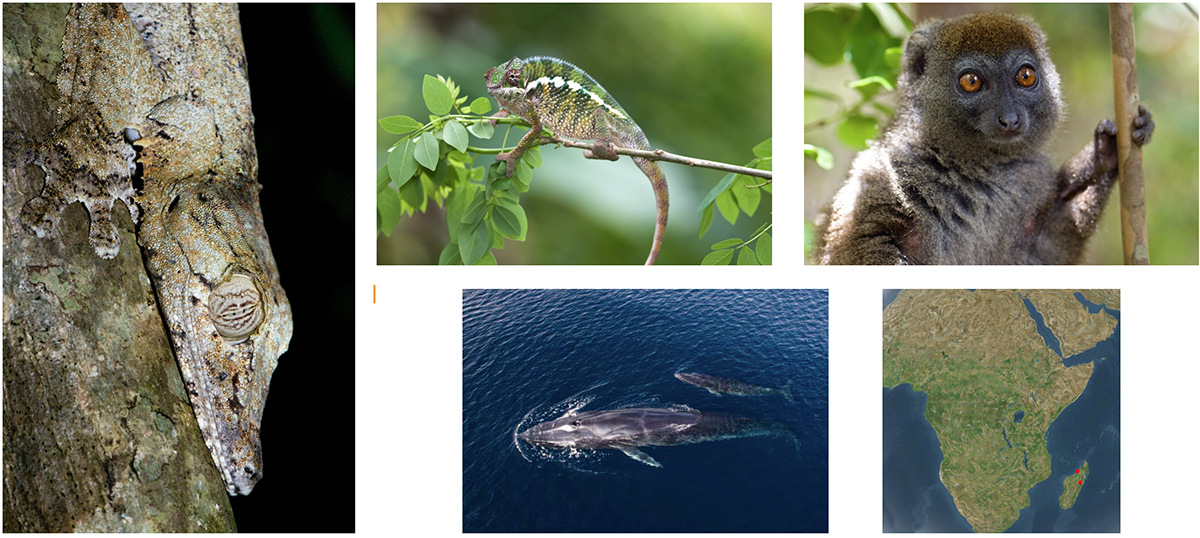


Join Mark and other wildlife experts on the popular Festival of Wildlife, this time in magical Madagascar, with a wonderful opportunity to join Mark on a very special extension trip to find the Omura's whale, one of the world's rarest baleen whale species. Spectacular wildlife includes indri, sifaka, diademed sifaka, Coquerel’s sifaka, common brown lemur, Grewcock’s sportive lemur, Parson's chameleon, giraffe-necked weevil, red-fronted coua, Madagascar fish eagle, and much more.
Date 31 October - 11 November 2026: places still available
Group size 30-37 people
Cost per person £9,995 (including flights from UK); £9,495 (excluding flights)
Optional extension trip with Mark to find one of the world's rarest whales!
After the Festival, there is a chance to book on a very special trip with Mark in search of one of the world’s rarest baleen whales, the Omura’s whale. From a convenient and comfortable base on the tropical island of Nosy Be, an island in the far northwest of Madagascar, we take daily charters into the warm waters of the bay of Nosy Be, home to a resident population of Omura’s whale. Nosy Be is probably the most reliable location in the world to see this only recently described (2003) and relatively little-known tropical species.
We hope to find the whales each day, perhaps feeding in the company of whale sharks, which also congregate in this area. In November, both these ocean giants are attracted by an abundance of krill and zooplankton.
Date 11- 18 November 2026: places still available
Group size 6-12 people
Cost per person from £4,455; single supplement £795 (including international and regional flights)
Don't miss out on this very special extension trip, places are limited!
Organised by Wildlife Worldwide – please contact Wildlife Worldwide if you wish to book
T: +44 (0) 1962-302-086
E: reservations@wildlifeworldwide.com
Organised by Wildlife Worldwide T: +44 (0) 1962 302 086
E: sales@wildlifeworldwide.com
We use the World Land Trust’s Carbon Balanced programme which enables travellers to offset their residual greenhouse gas emissions through the protection and restoration of carbon-rich wildlife habitats in the tropics.
Click here to donate.

